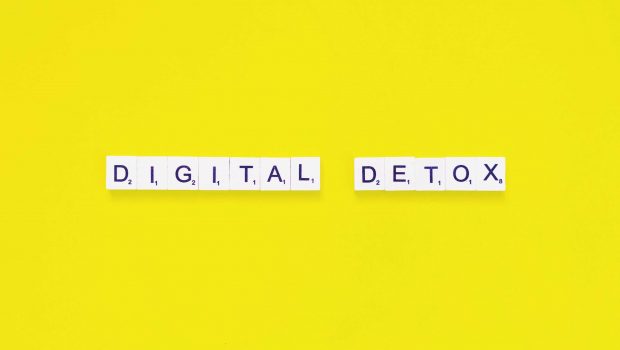These days most of you probably start your day by looking at your phone…scrolling through gloomy news about the coronavirus surge. The rest of your daily routine might be something like this: Divided among streaming movies on Netflix, Amazon Prime, Hulu, etc.. watching videos on YouTube and playing video games or working in front of your laptop/desktop. What is common in all these? All of these activities involve staring at a screen.
There has to be more to life than this. And now is the good time to consider a digital detox. No, that doesn’t mean quitting the Internet completely. Digital detox: Think of it as going on a diet and replacing bad habits by incorporating healthier ones to give our weary eyes some much-needed downtime from tech.
What is a digital detox?
Digital detox refers to a period of time when a person refrains from using all the tech-infused devices such as smartphones, television, computers, social media sites. ‘Detoxing’ from digital devices is often seen as a way to focus on real-life interactions without any distractions. By digital detox, at least temporarily, people can let go of the stress that comes from the obsession with constant connectivity.
“Too much screen time can take a toll on our mental health, depriving us of sleep and more productive tasks.”
Ways to disconnect:
Come up with a plan: Not all screen time is bad — after all, many working professionals are working from home in front of their laptops, and many students are attending school via videoconferencing apps. So step one is assessing which parts of screen time feel toxic and make you unhappy. That could be anything…from reading the news or scrolling through Twitter, Facebook, and Instagram. Step two is creating a realistic plan to minimize consumption of the bad stuff.
Set daily limits to the device usage: Do you feel that burning desire to check your feed after posting something, just to see if you got any likes? You get a hit of dopamine from each interaction you come across on social platforms and if you don’t moderate your use, you can get addicted to that feeling. Always keep a tab on how much time you are spending online, and set a limit for that time. Commit yourself to stay online within those boundaries and you’ll be amazed to see how refreshed you feel.
Source: https://www.onthebuzz.in/healthy-online-habits/
Create no-phone zones: We often charge our phones overnight, but that doesn’t mean that devices need to be next to us while we sleep. Many studies have shown that people who keep phones in their bedrooms sleep poorly. It’s best not to look at phones within an hour before bed. Moreover, having your phone in close proximity could tempt you to wake up and check it in the middle of the night. Outside of your bedrooms, you can create other No-Phone Zones. For example, the dinner table is a prime opportunity for families to agree to put phones away for at least 30 minutes and reconnect.
Keep the TV out of your bedroom too: Your TV can be a big distraction too, especially when it’s sleep time. When you are not sleepy, you will be tempted to watch TV rather than focusing on sleeping. If you are cutting out on any kind of devices inside your bedroom, not only phone, tablets, consider your TV too in that list.
Set a social media schedule: “There are only two industries that call their customers ‘users’: illegal drugs and software” – The Social Dilemma (Netflix Documentary). It has become quite easy to get addicted to social media nowadays. If you are on a digital detox try to set a social media schedule and monitor the time you are spending on social sites like Facebook, Twitter, Instagram, Snapchat, etc. Set a time limit and strictly follow it.

